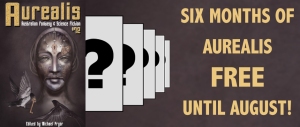by Lachlan Walter
We probably all know a book snob. Some of us might even be one, although if you’re reading this blog that’s reasonably unlikely. In my experience, there’s nothing that a book snob loves to hate more than genre fiction. Horror? Exploitative trash of the crudest kind. Thrillers? Airport rubbish that deserves to be remaindered. Romance? Pure drivel; good for nothing but the recycling bin. Westerns? Anachronistic macho bullshit. Fantasy? Nonsensical entertainment for the childish. Chick-lit? Mindless nonsense that should have stayed in the slush pile. Science fiction? Mechanical boys-own-adventure pap.
These are all criticisms that I’ve overheard at my local library, at my favourite bookshop, or that I remember from back in my uni days (although they have been made a little less crude). Statements like this are sad, really, and a little bit pathetic. They both symbolise a kind-of “literary bigotry” and deny those who hold such viewpoints the undeniable and unique pleasures that can be found in genre fiction. So, the question is, how do we convince these people to change their intolerant and blinkered attitudes? Especially in regard to both science fiction and post-apocalyptic fiction – my preferred genres, as well as the ones I’m most familiar with, and the reason why we’re all here.
I believe we need to expose these book snobs to good works of genre fiction, works that both expand their understanding of each genre’s potential and make full use of the particular themes, tropes, devices and peculiarities inherent to each. But what a genre fan might consider good isn’t necessarily good for a reluctant reader with a nigh-intractable bias. I’ll use science fiction as my example. Classic works such as Philip K. Dick’s Valis, Russell Hoban’s Riddley Walker and Stanislaw Lem’s Solaris, and more contemporary works such as William Gibson’s Neuromancer, China Mieville’s Perdido Street Station and Neal Stephenson’s Cryptonomicon, might all be considered great works of science fiction by both fans and critics, but it’s unlikely that any of them would convert a book snob. They are too dependent on the reader’s knowledge of science fiction’s “rules” and too-often rely on said reader’s established appreciation of the genre and subsequent willingness to engage with works that are arguably “outside” the norm.
This brings us, in a rather roundabout way, to humanist science fiction.
Now, humanist is a somewhat elastic term, especially when we try and apply it to both fiction and science fiction. After all, it is technically “the non-religious philosophy based on liberal human values” (according to my trusty dictionary). Such a prosaic description doesn’t do justice to the beauty that can be found in what I consider to be humanist science fiction, never mind the fact that it sums up a non-religious philosophy rather than a narrative framework or guide. To me, works of humanist science fiction are those that focus on both the inner emotional lives of their characters and on the impact of “the big idea” on these inner emotional lives, rather than on “the big idea” itself. This isn’t to say that “the big idea” – the crux of the genre, the event/invention/technological breakthrough/environmental cataclysm that shapes and propels a science fiction plot – isn’t important to humanist science fiction. However, while it may be necessary to the plot, more often than not it is somewhat pushed to the background, chiefly existing to drive the examination and explication of the characters and their inner and emotional lives, and allowing these themes to occupy the foreground.
Does this all sound a bit complicated? Basically, I consider humanist science fiction to be that which shines a lot on both the beauty and the horror of being human, on the joys and sorrows and the triumphs and tragedies and the excitement and mundanity of being alive.
Take Matt Haig’s The Humans as an example. In this unbelievably moving work, “the big idea” is that Andrew Martin, a professor at Cambridge University, has solved a mathematical equation that will dramatically accelerate humanity’s technological progress. The Vonnadorians – alien beings with an almost hive-mind mentality, who operate according to cold logic and act as intergalactic observers – decide that humanity isn’t ready for this acceleration. Consequently, they send one of their own to “erase” this new knowledge by killing Martin, destroying the physical and digital evidence of his breakthrough, taking his place both literally and figuratively (assuming his physical identity through the use of alien technology and assuming his role as a husband, father and teacher), determining who Martin shared this knowledge with, and killing them as well.
So far, so science fiction.
This is merely the set-up, however, for Haig’s exploration of the “new” Martin’s assumption, acceptance and embrace of humanity. His journey begins with confusion and amusement in the face of such everyday things as our relationships with dogs and the human-centric nature of the news, all beautifully phrased and infused with a good dose of humour. But, as the plot progresses and the “new” Martin learns to love and to loathe and to feel joy and sorrow and to experience pleasure and pain and excitement and boredom, the tone becomes both more serious and more touching, while still maintaining its beautiful phrasing and sense of humour. The effect is startling: in the lessons that the “new” Martin learns, we ourselves are reminded of just how incredible and just how dull being alive really is. We realise that The Humans is a work that celebrates just that: being human, being alive.
Humanist science fiction like The Humans will move anyone, even a book snob. I ask you to try it, to go out and spread the word, to do your best to convert those people whose blinkered view stops them from seeing beauty in certain things.
Or just read some. If nothing else, it’ll make you feel better about yourself, and that’s no small thing.
(For furthering reading, I would recommend starting with Ray Bradbury’s The Martian Chronicles, Kurt Vonnegut’s Timequake, Stanislaw Lem’s Memoirs Found in a Bathtub, Jonathon Lethem’s Girl in Landscape and Steven Amsterdam’s What the Family Needed; while some good works of humanist post-apocalyptic fiction to begin with would be Cormac McCarthy’s The Road, Thomas Glavinic’s Night Work, Judith Merril’s Shadow on the Hearth, Peter Heller’s The Dog Stars, and Steven Amsterdam’s Things We Didn’t See Coming.)



